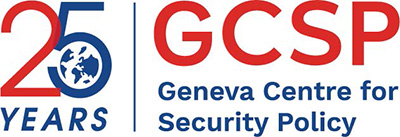
Geneva Centre for Security Policy
The Geneva Centre for Security Policy (GCSP) is an international foundation established in 1995, with now 53 member states, which strives to effectively serve the current and the next generations of policy and decision-makers in governments, international organizations, non-profit organizations, as well as in the private sector. Anchored in innovative new teaching methods centred on bridging experience and expertise, the GCSP way endeavours to offer a unique global platform of knowledge and practice of international security affairs. It is located in the “Maison de la paix” in the middle of International Geneva.
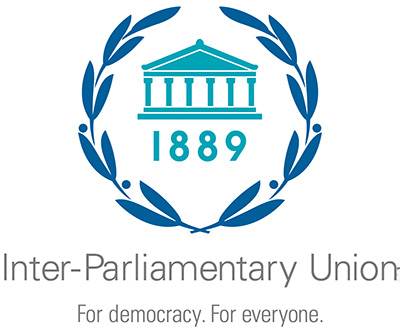
Inter-Parliamentary Union
The Inter-Parliamentary Union (IPU) is the global organization of national parliaments. It was founded 130 years ago as the first multilateral political organization in the world, encouraging cooperation and dialogue between all nations. Today, the IPU comprises 179 national Member Parliaments and 13 regional parliamentary bodies. It promotes democracy and helps parliaments become stronger, younger, gender-balanced and more diverse. It also defends the human rights of parliamentarians through a dedicated committee made up of MPs from around the world. Twice a year, the IPU convenes over 1,500 parliamentary delegates and partners in a world assembly, bringing a parliamentary dimension to global governance, including the work of the United Nations and the implementation of the 2030 Agenda for Sustainable Development.

Parliamentarians for Global Action
Parliamentarians for Global Action (PGA), which was established in 1978, is a non-partisan international network of approximately 1,300 legislators in over 140 elected parliaments around the globe, with aims to promote peace, democracy, the rule of law, human rights, gender equality and population issues. PGA informs, convenes, and mobilizes parliamentarians to realize these goals.
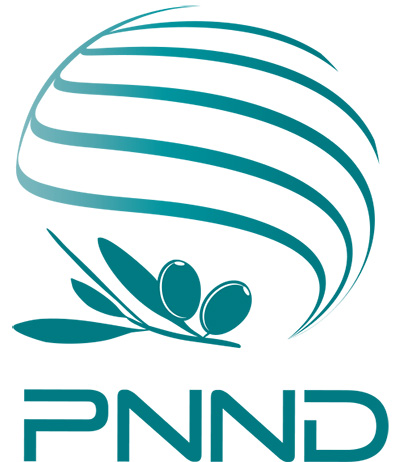
Parliamentarians for Nuclear Non-proliferation and Disarmament
Parliamentarians for Nuclear Non-proliferation and Disarmament (PNND) is a global, non-partisan network of over 600 legislators working to reduce nuclear dangers, prevent nuclear weapons proliferation and advance the peace and security of a nuclear-weapon-free world. PNND includes members from nuclear-armed, allied and non-nuclear states, and facilitates dialogue between these legislators in order to address and transcend the security issues giving rise to nuclear deterrence policies. PNND is also active in highlighting the links between nuclear disarmament, peace, climate protection and sustainable development.
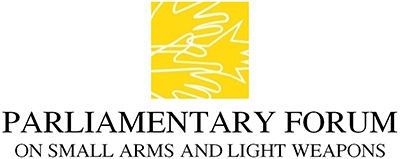
Parliamentary Forum for Small Arms and Light Weapons
The Parliamentary Forum on Small Arms and Light Weapons (PFSALW) is a membership-based organisation gathering parliamentarians globally across party-political lines, specifically related to the reduction and prevention of Small Arms and Light Weapons (SALW)-related violence. It is an organisation constituted by parliamentarians, for parliamentarians gathering more than 295 members from parliaments in over 90 countries globally, incorporating the gender equality perspective as one of its strategic priorities. The Theory of Change of PFSALW is to contribute to the achievement of more peaceful and sustainably developed societies by enhancing parliamentary action in the implementation and universalisation of international frameworks relevant to the prevention and reduction of SALW-related violence through capacity-building, policy-shaping and awareness-raising.
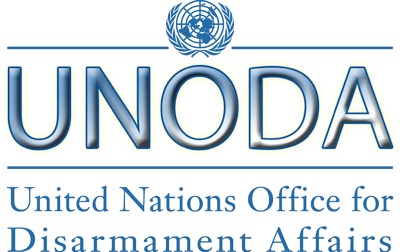
United Nations Office for Disarmament Affairs
The United Nations Office for Disarmament Affairs (UNODA) was established in 1982 (originally as the Department for Disarmament Affairs) in order to provide institutional support for multilateral efforts aimed at achieving the goal of general and complete disarmament under strict and effective international control. The mandate for the programme is derived from the priorities established in relevant General Assembly resolutions and decisions in the field of disarmament. Priorities include weapons of mass destruction, humanitarian impact of major conventional weapons and emerging weapon technologies, such as autonomous weapons.
The participation of UNODA in this handbook indicates support for the important role of parliamentarians in implementing disarmament goals, but does not imply endorsement of any specific policy, parliamentary action or recommendation included in the handbook.
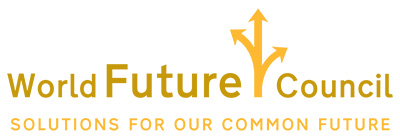
World Future Council
The World Future Council (WFC) consists of a group of 50 councillors who are eminent global change-makers, supported by a team of program officers. The councillors come from governments, parliaments, civil society, academia, the arts and business who have already successfully created change. They identify effective policies to address global issues, and advance programs to replicate and spread such policies. Policy areas include Climate & Energy; Peace & Disarmament; Food, Land & Livelihoods; Oceans; and Rights of Children and Youth.